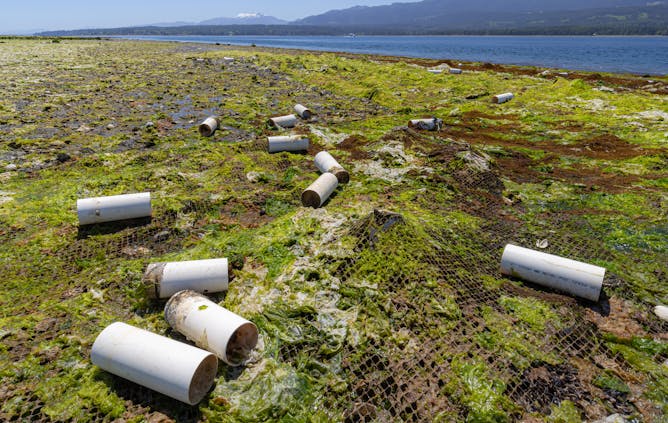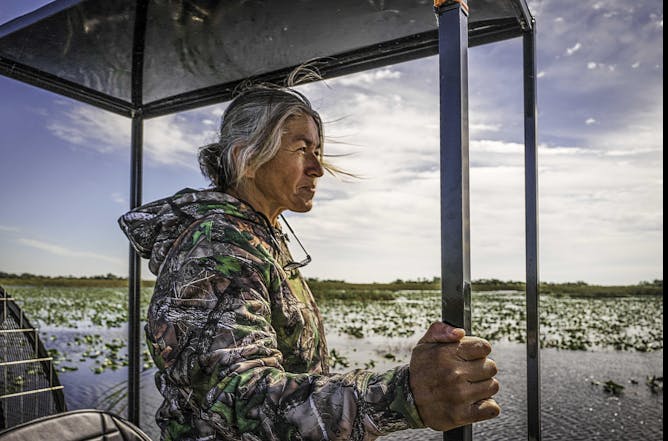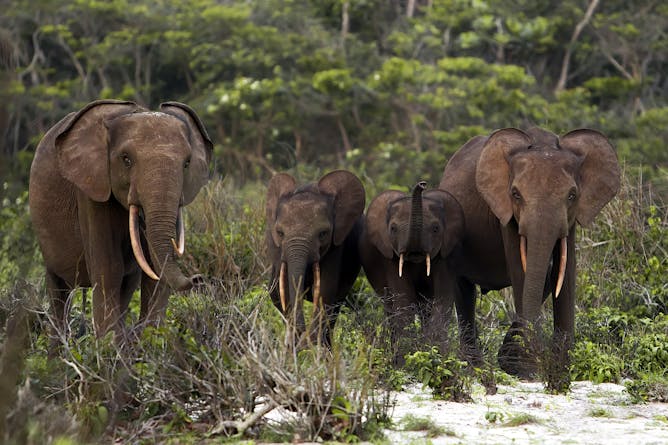|
Our current global political climate seems dangerously familiar to historians. Today in The Conversation Canada, Klaus Meyer of Western University has written an absolutely fascinating historical piece about Adolf Hitler’s rise to power between 1930 and 1933, which, he notes “helps us better understand 1939 to 1945.” As Prof. Meyer notes: “To better understand why countries may abandon liberal democracy, it’s instructive to turn to history.” The story may be about something that happened 90 years ago, but it’s very relevant to the world we now live in.
We also have two different environmental stories: why harvesting luxury shellfish is adding to the problem of plastics pollution in oceans and the role that swamps play in human survival.
Our final story today is about a topic that resonates with many Canadians. Étienne Aumont of Université du Québec à Montréal explains why new approaches are needed to treating Alzheimer’s – a disease that is expected to impact one million Canadians by 2031.
Regards,
|

In this March 1938 photo, Adolf Hitler salutes German troops parading in Vienna, Austria, the country of his birth.
(AP Photo)
Klaus Meyer, Western University
Adolf Hitler's rise to power contains important lessons for us today when it comes to dealing with modern-day extremists.
|

Segments of PVC pipe washed up on shore in Denman Sound, B.C.
Paul Nicklen/Sea Legacy
Leah Bendell, Simon Fraser University
Growing demand for large salt-water clams is leaving parts of the B.C. coast littered with plastic debris.
|

Betty Osceola, a Miccosukee educator and water activist who runs her own airboat business, is one narrative guide into the Everglades in SwampScapes.
(Grant Bemis)
Elizabeth (Liz) Miller, Concordia University
A filmmaker, her students and community partners create a multi-platform documentary and study guide to teach swamp literacy and care through a trip into the Everglades.
|

Hundreds of clinical trials have been conducted over the past 10 years to find a cure for Alzheimer’s disease. They all failed.
Shutterstock
Étienne Aumont, Université du Québec à Montréal (UQAM)
Alzheimer’s disease is the most common form of dementia. Despite all efforts, no treatments have been found yet. To increase the odds, we need to rethink our approach and try to better understand it.
|

Les éléphants de forêts africains sont en voie d’extinction rapide. Si nous le protégeons, nous combattrons également le changement climatique.
Shutterstock
Ahimsa Campos-Arceiz, University of Nottingham
Une nouvelle étude montre que les éléphants augmentent de 7% le carbone stocké dans les forêts.
|
Business + Economy
|
-
Zac Rogers, Flinders University
For all their good intentions, accidents happen when fallible humans intervene in complex systems they don't understand.
|
|
Politics
|
-
Brian Nolan, University of Oxford
Populism is on the rise in countries where inequality has been fairly stable over time, as well as countries where inequality has grown.
|
|
Science + Technology
|
-
Christoph Völter, University of Veterinary Medicine, Vienna
Chimpanzees, like humans, possess working memory abilities. They're able to perform similar to seven-year-old children.
|
|